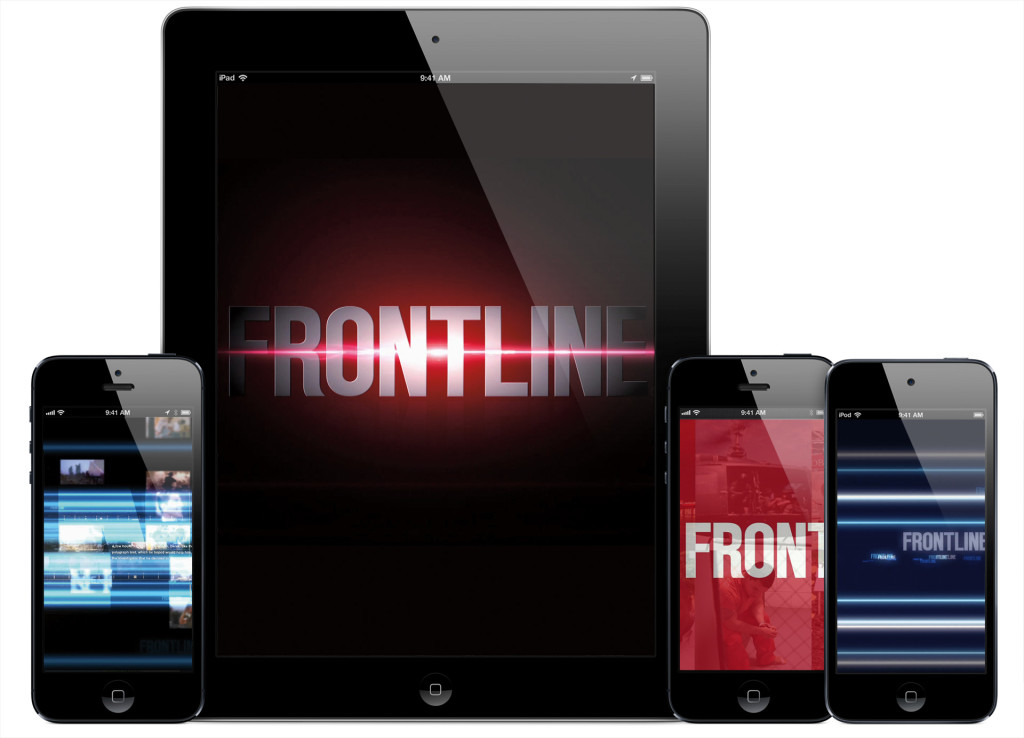Envisioning the “Second Screen”

July 25, 2013
Share
This week our team has spent a fair amount of time discussing the “second screen” concept – the idea that people who watch FRONTLINE on television may also have a laptop, smartphone or tablet open at the same time.
According to Nielsen “85% of tablet/smartphone owners use their device while watching TV at least once a month with 40% of them doing it daily.” Naturally people have their tablets/smartphones open for all sorts of reasons — such as email, Facebook-ing, web-surfing or texting — but there’s a reasonable number of people who are looking for more about what they’re watching on TV.
The question for us is how do we build a tablet experience that complements our films without distracting from them?
Since we first launched in 1995, presenting additional supporting material and related content on our website has been a key part of FRONTLINE’s mission. Artifacts uncovered during production, source materials, extended interviews and images enhance the journalism in the films.
Translating that idea to the tablet raises some questions: How important are related features to the overall experience? Are certain elements more important than others? Should they interrupt the experience — for example, would you want to pause a film to read an interview transcript or document — or run concurrently? Do people want to flag these related pieces for consumption after the film is over? These are questions that are all being considered by our team.
Another key interest we have is to make sure it’s easy for viewers to interact with each other around the film. For live events, that interaction is already happening primarily on Facebook and Twitter, and there’s a case to be made that in such cases, the television itself is the second screen.
We participate in that interaction by live-tweeting each new Tuesday night broadcast, but we also know that a growing portion of our viewing happens outside of the initial PBS broadcast; also Twitter is a small subset of our overall audience. So what kind of interaction experience can we create when people are watching at different times? Again our team is considering several options from not incorporating feedback to potentially allowing people to annotate specific points in a film.
The idea of showing our films AND related content on the same screen is daunting in a sense: Our filmmakers and editors strive to create compelling visual storytelling that we’d like you to pay close attention to. It’s a fine line between complementing the film and distracting from it – and this is one we’re spending a great deal of time trying to figure out. The days of undivided attention to films are probably limited if not gone; now it’s about building an experience that works regardless of how you choose to watch it.
Latest Documentaries
Explore
Policies
Teacher Center
Funding for FRONTLINE is provided through the support of PBS viewers and by the Corporation for Public Broadcasting, with major support from Ford Foundation. Additional funding is provided the Abrams Foundation, Park Foundation, John D. and Catherine T. MacArthur Foundation, Heising-Simons Foundation, and the FRONTLINE Trust, with major support from Jon and Jo Ann Hagler on behalf of the Jon L. Hagler Foundation, and additional support from Koo and Patricia Yuen. FRONTLINE is a registered trademark of WGBH Educational Foundation. Web Site Copyright ©1995-2025 WGBH Educational Foundation. PBS is a 501(c)(3) not-for-profit organization.



















